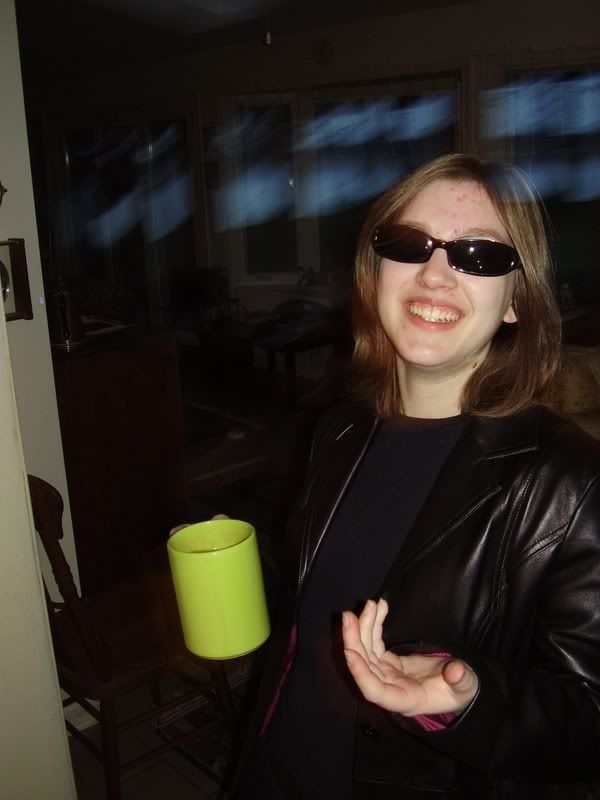This is a (pretty good) essay on Harry Lyme from The Third Man, played by Orson Welles. I loved Harry (I like Welles) a lot. So, for film class, I wrote this two page essay on him (instead of a really long essay on the whole movie).
The Third Man was directed by Carroll Reed, is British and from 1949.
...
A British ‘noir’, The Third Man contains inventive film shots and intriguing set to explain the antagonist: Harry Lyme (Orson Welles). It takes place in Vienna, after the WWII. Due to the bombings, the city filled with rubble. Using the city’s rubble and maze-like sewage system, Carroll Reed enhances Harry’s mental disposition. Not only that, but the way in which he twists the camera so the shots themselves become askew, also enhances the movie. Besides rubble and rubbish, the music further perplexes the audience. A zither for a noir background is uncommonly pleasing. It is peppy and out of place among murders and threats.
Whenever something seems to be going wrong or Harry Lyme is mentioned, the screen tilts. We first see it tilt when Holly finds out that his best buddy, Harry Lyme, is dead. Not only is the shot tilted, but we are looking up at the man telling this horrid news. The next time we see this tilted-shot is when Holly and Anna talk to each other. The topic of choice is, of course, Harry. Whenever Holly is close to learning a clue about Holly, such as when they are talking to the porter, the screen goes back to that familiar tilt. This tilting would most likely be, because, the truth about Harry is what everyone thinks. It shows an inner turmoil in Holly. He does not believe that Harry is dead, so whenever a clue or the subject of him comes up, the truth bends.
The rubble, too, is akin to what Harry has become. According to Holly, we get the understanding that Harry would not sell bad medicine plainly for money. The rubble and Harry made each other. Because of the bad life in Vienna, Harry began a less honest way of work. Then again, Harry also ruined lives, turned them into rubble. Harry and the rubble are the same, brothers. By the time Holly arrives in Vienna, Harry’s life is in complete disarray, just like the city.
The sewage system, too, is also like Harry. Harry’s life is neither straightforward nor clean. The Vienna sewage is a maze. There are so many entrances and turns and rooms. Harry has many faces. The one he shows Holly or Anna and many others. He was both a friend to Holly and his antagonist. He was Anna’s lover and her condemner. He is dead and alive. Holly knew him as a friend, but when they took the Ferris wheel ride together, it dawned on Holly that the old Harry he knew and befriended was not particularly alive anymore. Instead, there was a cold criminal. To Anna, Holly loved her. He was her benefactor. He gave her a passport, even if it was fake. But he also turned her in to the police. Harry took away his gift. Harry was supposed dead. He would have remained so if Holly did not come around. Once Holly arrived in Vienna, Harry was alive. Holly refused to believe either that Holly was dead or that Holly was not murdered. Holly resurrected Harry.
Despite the seriousness of the happenings in the movie, the zither music is light-hearted and happy. Instead of feeling intense, the audience feels as though nothing is important. Anna’s passport is found fraud, cheerful zither. Holly is being chased by an angry mob, peppy zither. It is as though we are hearing the world through Harry’s ears. Harry is sarcastic, dry and witty. While he may talk about something death-defying serious, he jokes. During the Ferris ride, he mocks Anna and love. He mocks peace and human compassion. Harry Lyme is bitter, cynical man and he sells flawed medicine with zither music in his head. He even dies to it.
The Third Man, for all its seriousness, it is oddly twisted. Even though Harry is the antagonist and only appears at about the last quarter, the movie reflects his feelings, thoughts and being.
Subscribe to:
Post Comments (Atom)

No comments:
Post a Comment